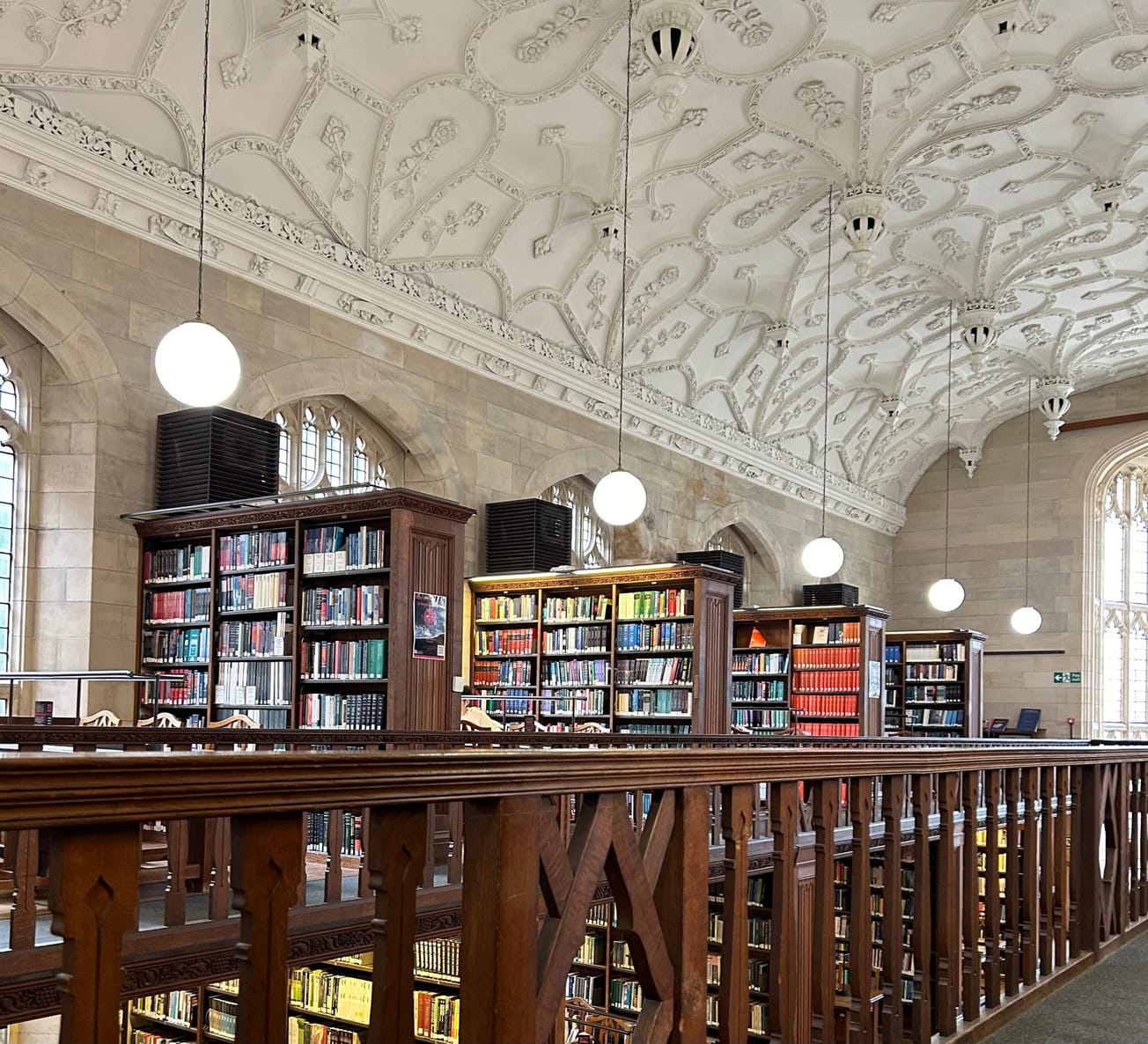By Zoe Tang, Third Year, Law
With exam season taking place before Christmas for the first time at the University of Bristol, libraries and study spaces were already bursting at the seams by late October, with students flocking there between lectures and after class. It’s not an uncommon sight to see hordes of students patrolling the floors of the Arts and Social Sciences Library (ASSL) for a seat to no avail, some retreating to the floors of stairwells or by entrances (and some giving up entirely and going home). It’s a real game of ‘you snooze you lose’ – get to the library past 9am and you would have been better off staying home instead. As exams drew closer students would stay longer, with late-closing libraries like Queens’ and ASSL still having close to 90% capacity by 9-10 in the evening.

If there were one thing to be unanimously agreed on among Bristol students, it would be on how much of a wreck the University’s study space allocation is. Boasting a student population of 29,992 in 2022-23, the University only offers about 8,000 study seats across libraries, faculties and halls – that’s barely enough to provide for one-third of students without even considering how some study spaces are ‘special access’ for postgraduates, certain faculties and halls.
It was inevitable that the only twenty-four-hour library in the University, the ASSL, would always be full as other libraries closed. With a meagre capacity of around 800 seats, I found myself struggling to find a seat even at 10pm. As I looked around, I couldn’t help but notice how almost half the seats were unoccupied but reserved by belongings: schoolbags, plugged-in laptops, even an umbrella was enough to ward others away from a seat already claimed.
Staying until early morning hours, I was surprised at how many of these seats remained empty and untouched – further into exams I realised how some students use the same seat for multiple days as they leave their belongings overnight while they sleep or take long breaks. ‘People saving seats just makes studying home less of a hassle’, ‘it’s like a race every day’, says two final-year students – it is true that many students have opted to stay home for assessments to afford more flexibility in study hours. There have also been stories circulating about how some students abuse the seat reservation policies to force other students off bookable seats they did not reserve, and how some others have been vacated from their study spot because another student did so. Even though more study seats have been first-come-first-serve over exam period, the reservation system still acts as an agent for creating inequity between students’ access to study spaces.
Obviously, these persisting practices are in no way fair use of shared facilities and make it much more difficult to find seats during off-peak hours, but the prevalence of these methods raise broader questions about the sufficiency of study space allocations within the university. By doing little to prepare for growing student numbers and imminent periods of peak demand, unnecessary stress is perpetuated among students, negatively affecting their work quality and overall mental wellbeing. Some students simply do not have the resources to study at home – be it the lack of devices and furniture – they become heavily disadvantaged in the event of not having a study seat, which may be detrimental to their academic performance and attitudes towards their studies. The negative feelings associated around the accessibility of study seats also breeds hostility feelings, resulting in a collective lack of respect for designated rules to maintain neatness and silence in study spaces. Many students have expressed frustration towards other students’ habits of chatting and loitering in quiet study areas, and some have commented on how other students don’t clean up after themselves after occupying a desk.

Student perceptions of learning spaces are integral to their intellectual development. Providing comfortable and technologically equipped environments where students can undergo self-conducted study is paramount to overall University performance and student wellbeing. Students have expressed how it’s been an awful experience simultaneously worrying about assessments and whether you can secure a seat at nine in the morning.
A third-year Innovation student suggested repurposing lecture halls as study spaces over exam period, and equipping study spaces with more extension cables for charging. It does offer more space over short periods, but ultimately the University’s ambition for high student numbers must be met with corresponding investment into the expansion of facilities. £38.6M was spent on university premises in 2022/23, yet there seems to be little visible progress on improving student accessibility to study spaces.
There can only be so much that students can do to mitigate the multitude of difficulties during exam season – it is the university’s role to provide appropriate facilities and support for students to excel both academically and in life, but they grow complacent and ignorant towards student feedback due to the current state of university as a self-sustaining business model: the commercialisation of education diminish student voices and reduce the importance of our wellbeing as the biggest stakeholder in universities. Why are we policing and blaming each other for things that we ultimately can’t control?








